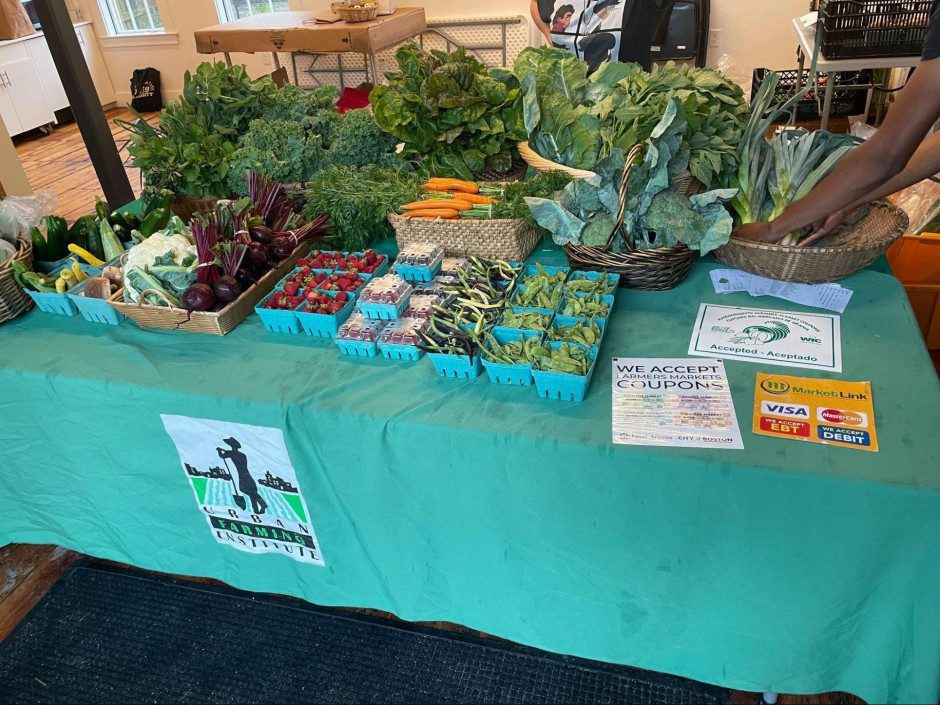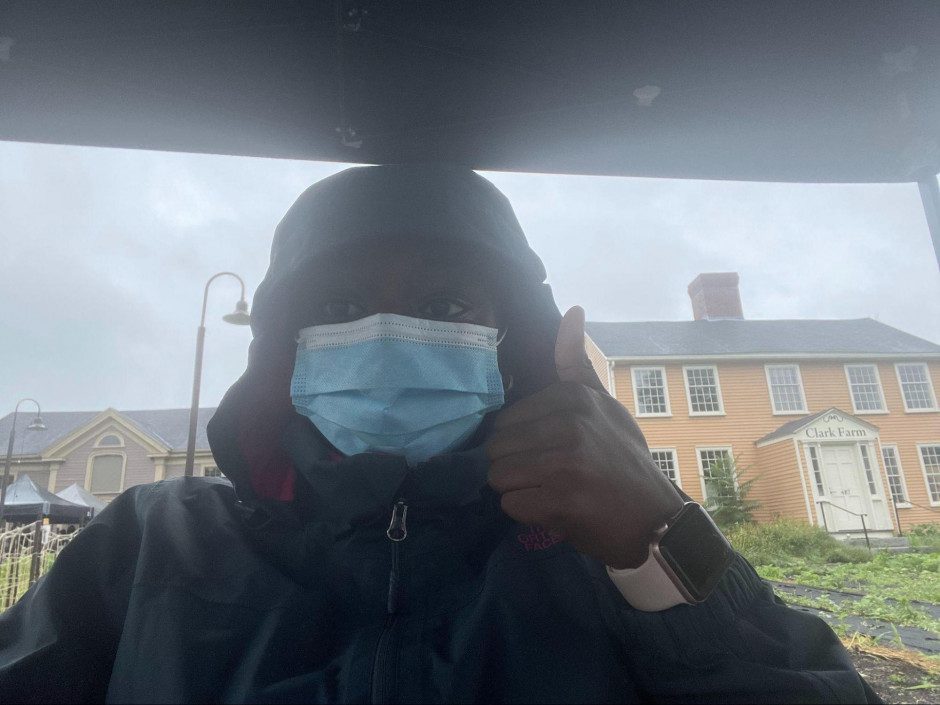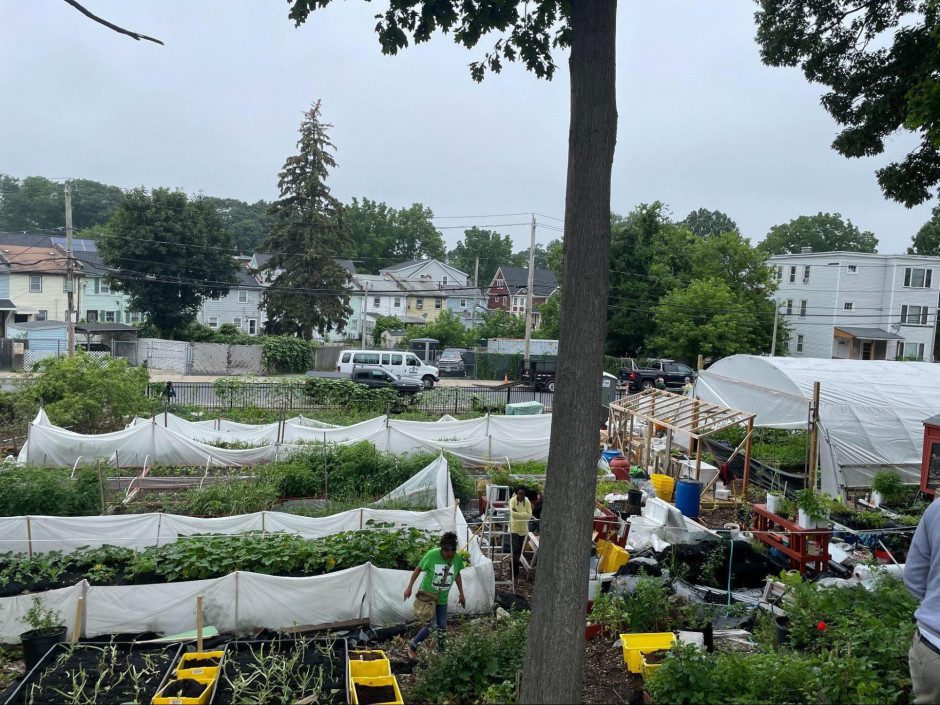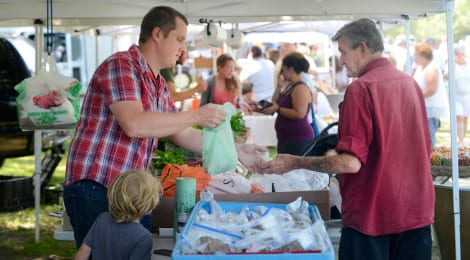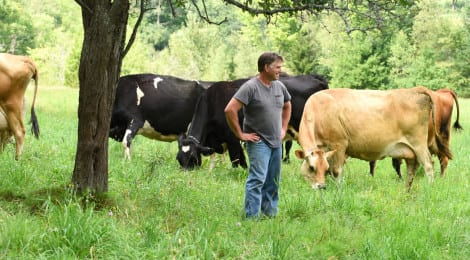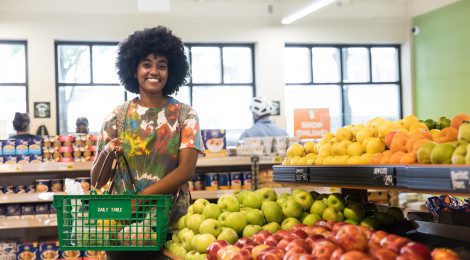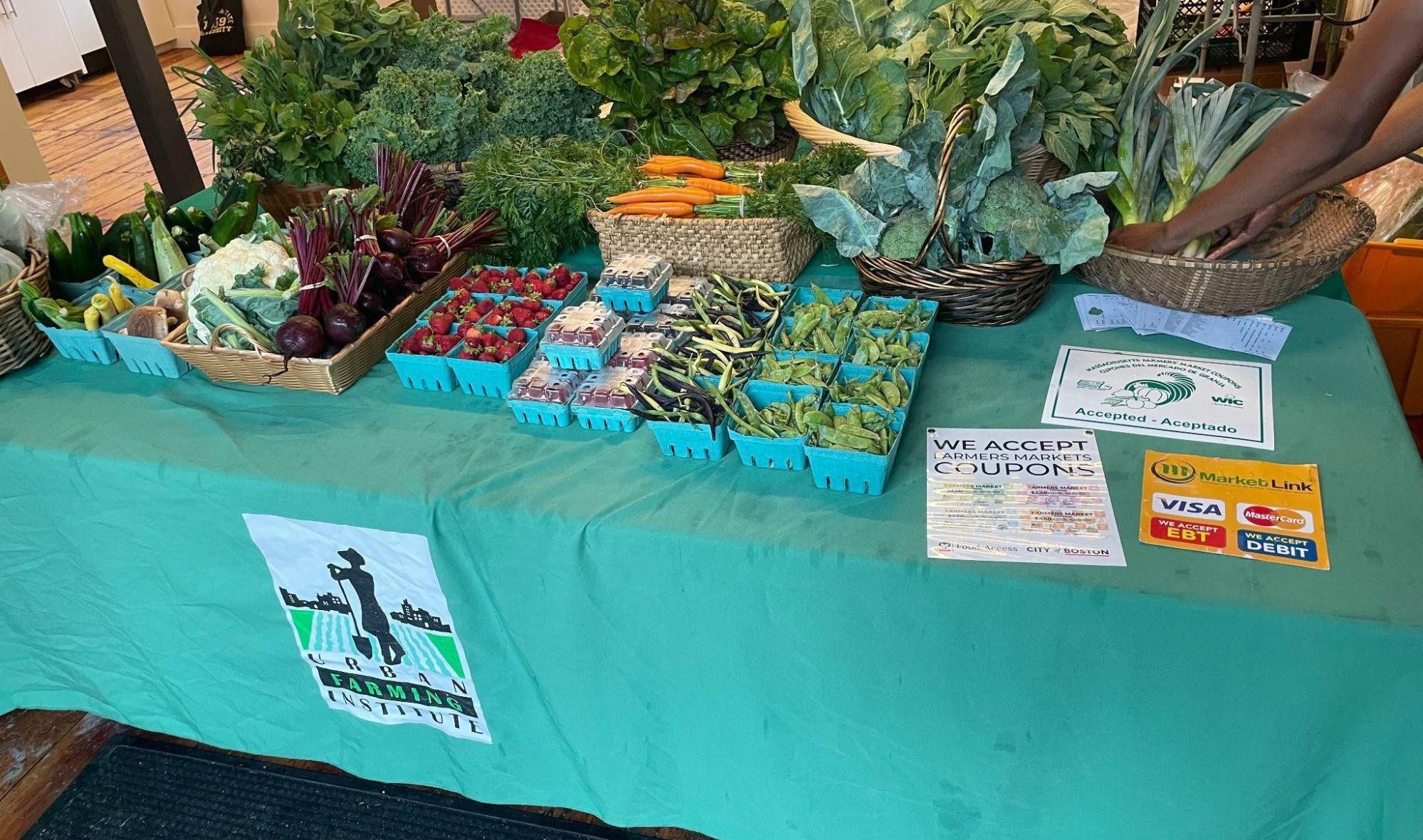
Grantee Profile
Intern Feature: Urban Agriculture in Boston
In Summer 2021, the Henry P. Kendall Foundation funded internships at two partner organizations in Boston, the Urban Farming Institute and Daily Table. Kayla Mathieu, a 2021 Milton Academy graduate, worked closely with the UFI team before starting her studies at Harvard in the fall.
Before I interned at The Urban Farming Institute (UFI) this summer, I had no idea how much dedication and work urban farming requires. In 2020 I worked with UFI’s CEO, Pat Spence, on a fundraising campaign called Ride for Food, which sparked my interest in development and urban agriculture. My internship about the nonprofit sector while supporting farming trainees. Through my work I learned about the wide range of reasons trainees were interested in the program, including getting more in touch with the outdoors post-quarantine, using farming as an educational tool for youth, or simply wanting to understand where their food comes from. When the farming trainees were not picking strawberries and peas, they visited other farms such as Codman Farm and Boston Children Hospital’s rooftop healing garden, to gain a holistic view of the farming world. To conclude the 20-week course, trainees complete a business plan to enhance their agricultural skills and capacity.
UFI’s mission is to develop and promote urban farming while engaging individuals in growing food and building a healthy community. In addition to initiatives such as Fit Around The Farm for seniors and destination cuisine featuring guest chefs, UFI also runs a farm stand every Friday from 1-4 through October. The farm offers fresh fruits and veggies to the community for a fair price, and is a popular Friday afternoon destination for residents in the local area. Customers are enthusiastic about the fresh produce they purchase and consistently applaud the organization’s work to make local items available to the community. This self-sustaining manner of feeding the community is a model that UFI aims to spread with their Urban Farming Conference, gathering those interested in urban farming from across the country.
In addition to supporting the urban agriculture aspect of UFI’s work, I gained valuable perspective on the other side of a nonprofit organization while I worked with the development department. I helped the team computerize about five years worth of donations into a database, which helps UFI to improve the way they track and thank their donors, an essential part of keeping the farm running. Additionally, the database helps UFI observe trends in giving and track participation in their numerous events. Finding out what’s working and what’s not in terms of advertising is crucial to keeping the organization moving forward. While observing CEO Pat Spence in meetings with state representatives and listening to her speak passionately in an interview about the need for systemic change in the food system, I have come to realize the importance and value of innovative organizations like UFI. The Urban Farming Institute’s leadership and passion for local, resilient food demonstrates how communities create change.
I had heard about UFI through CEO Pat Spence as I engaged in fundraising for the Ride For Food in 2020. I found the concept of urban farming interesting, but had no idea how much actually went into it. On my first day I walked into the front gate of UFI’s headquarters to 6 people tending to things growing all around the half acre farm. These were the farming trainees chosen to engage in a 20-week course on urban farming. Throughout my time on the farm I got to work with the trainees a few times, learning about the wide range of reasons they had for engaging. Whether it was wanting to be more in touch with the outdoors after quarantine, using farming as an educational tool for youth, or simply wanting to know more about where food comes from, each of them is asked to come up with a business plan at the end of the course. When the farming trainees weren’t picking strawberries and peas they were visiting other farms to gain a more holistic view of the farming world. From visiting Codman farm, a for profit rural farm, to visiting Boston Children’s Hospital’s rooftop healing garden, there was such a wide variety of farming experiences to take in and learn from.
On top of initiatives such as Fit Around The Farm for seniors and destination cuisine featuring guest chefs, UFI also runs a farm stand every Friday from 1-4 through October.
Offering fresh fruits and veggies to the community for a fair price, the farm stand is a popular Friday afternoon destination for residence in the local area. Not only enthusiastic about the produce they are getting, farm stand customers consistently applaud the work of the farm.
Central to UFI’s purpose is feeding the community with food from the community, grown by people from the community. This self-sustaining manner of feeding the community is a model that UFI aims to spread with their Urban Farming Conference, gathering those interested in urban farming from across the country.
On the other hand, I was able to see the other side of a non-profit organization while I worked with the development department. We worked to get about five years worth of donations computerized and into a database. The database helps UFI to improve the way they track and thank their donors, an essential part of keeping the farm running. Additionally, the database helps UFI observe trends in giving and track participation in their numerous events. Finding out what’s working and what’s not in terms of advertising is crucial to keeping the organization moving forward. While observing CEO Pat Spence in meetings with state representatives and listening to her speak passionately in an interview about the need for systemic change in the food system, I have come to realize the urgent need for more organizations like UFI.
